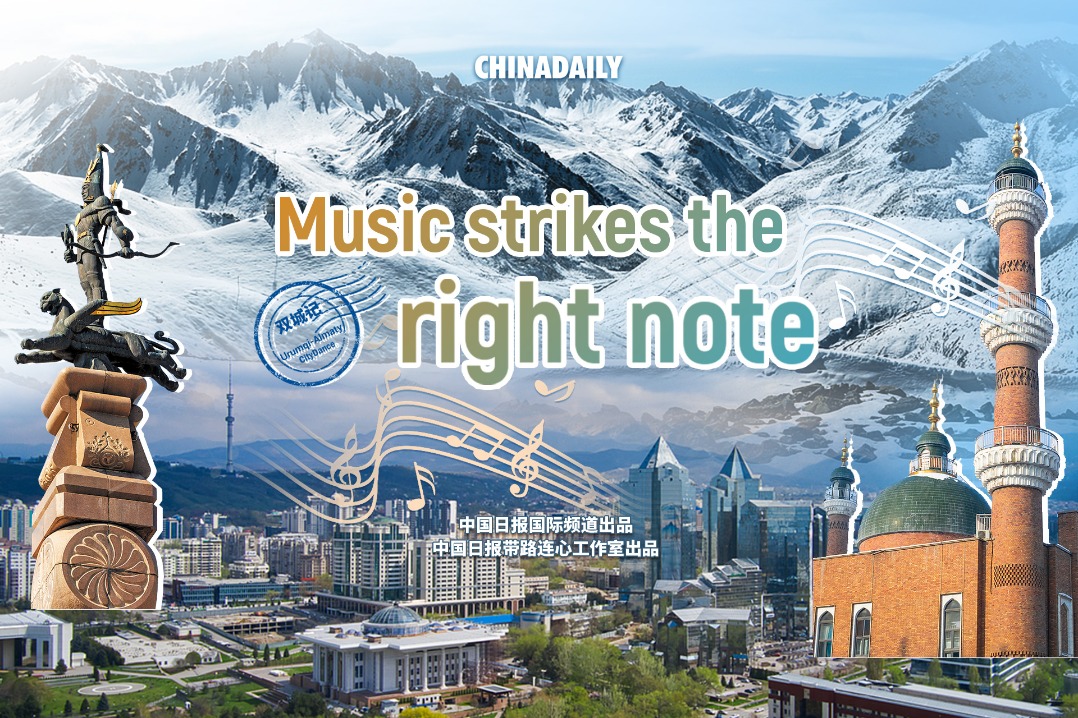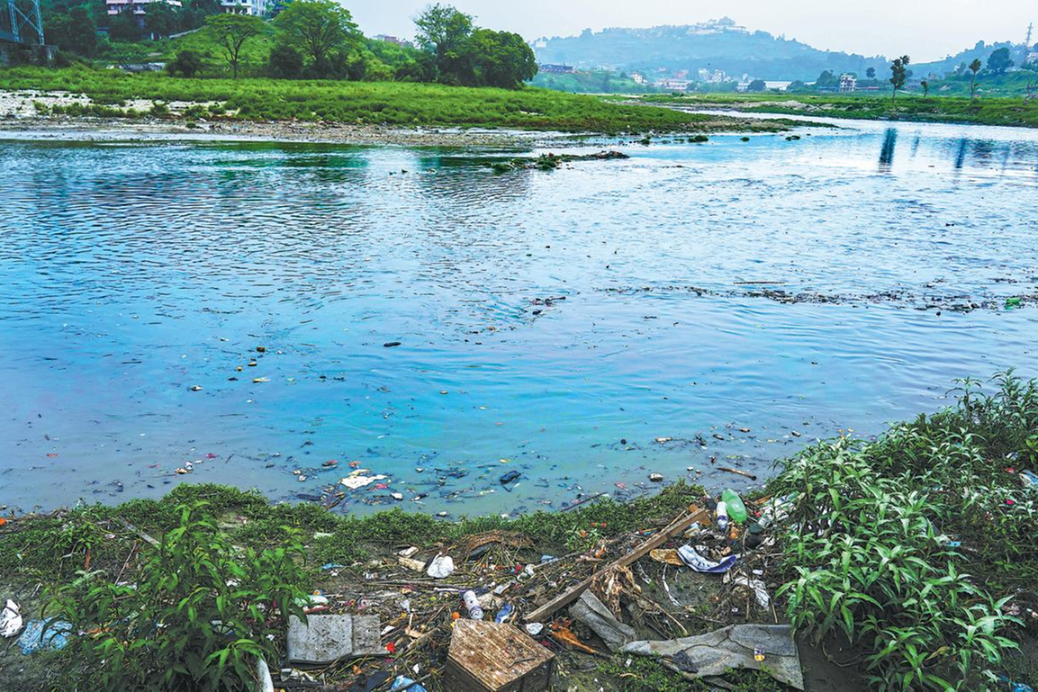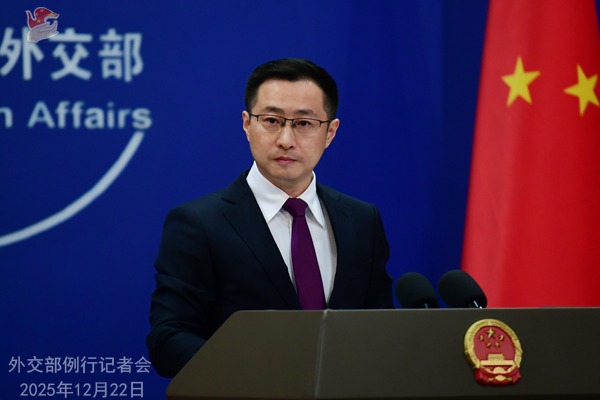Cooperation can ensure the welfare of all people


It was my great pleasure to return to the beautiful and wondrous Xinjiang Uygur autonomous region in October.
I visited Xinjiang in August last year, and in just one year I can see further progress in the economic and social development of the region. I suppose this should hardly be surprising: Since 1952, the real GDP growth of this amazing region has averaged 8.2 percent per year, and the overall income of the region has increased 200 times over this period. These are truly remarkable results.
The Arab countries and the people of Xinjiang are well acquainted. We have traded with one another for many centuries, and many of the important cultural forms of this region have their roots in Islam.
Every year, the Chinese Islamic Association supports the hajj from Xinjiang, to make a pilgrimage to the holiest sites of Islam. Xinjiang has long been a well-traveled commercial link along the Silk Road between China and the Middle East. This link is being further strengthened through new Belt and Road Initiative investments in infrastructure, special economic zones and a host of manufacturing, tourism and commercial projects.
Xinjiang assets are many: It has dynamic people and touristic beauty and is rich in mineral resources that include coal, gold, iron, zinc, chrome, nickel and copper, as well as petroleum and natural gas. The region is self-sufficient in food grains, and its cotton and fruits are prized commodities in global and local markets.
Unfortunately, the rapid and continuous development of Xinjiang has at times been overshadowed on many foreign media sites by often ill-informed reports of terrorism and separatist and sectarian strife. A sad fact is that extremism, terrorism and divisive sectarian violence against innocent people have become widespread in modern societies across the world. Extremists collaborate across international boundaries to foment terrorism and illicit activities for the benefit of the few.
Only through international cooperation can we successfully protect the rights, welfare and future of all our peoples. Accordingly, in July last year, 50 countries-including Bahrain, other prominent Arab states and members of the Organization of Islamic Cooperation-sent an unprecedented letter to the president of the United Nations Human Rights Council and the UN High Commissioner for Human Rights, expressing their support for China's continuous measures to promote peace and development in Xinjiang, protect its territorial integrity against local and foreign extremists, and safeguard human rights in the region for the entire population.
Furthermore, recently in New York, Bahrain was among the many countries that expressed support for China's position on Xinjiang and the Hong Kong Special Administrative Region in the UN General Assembly Third Committee Meeting.
This support does not reflect narrow views or outdated concepts of realpolitik. It reflects the reality that we live in an increasingly interdependent and interconnected world where comprehensive social, economic and cultural development must be achieved in a sustainable, safe and secure environment.
"Sustainable and comprehensive development" means creating the conditions for inclusive, extensive and balanced long-term growth to fulfill human aspirations in a fashion that is harmonious with our environment. "Sustainable and comprehensive security" is coextensive with development, since it sets the environmental conditions that enable humans to work harmoniously together, and with their natural environment, to achieve our real potential.
Many of us have joined the Conference on Interaction and Confidence-Building Measures in Asia with the aim of building the architecture to achieve sustainable and comprehensive development and security, based on dialogue and cooperation within multinational, interconnected networks of peoples, who embrace mutual respect, inclusiveness, fairness, justice, peace and stability.
The key concept here is "inclusiveness". Let us respect our differences but strive for greatness through cooperation, without resorting to threats, coercion or violence. The Middle East is a region where violence, terrorism and sectarian strife have festered for decades, destroying whole communities and the hopes of generations. We must do better.
Like China, we are determined to meet acts of aggression head-on, by enforcing the rule of law, strengthening our defense forces and educating our people on how to combat radicalization, terrorism and foreign interference in our domestic affairs. We must support each other in our commitment to counterterrorism and de-radicalization.
We must deflect destructive energies and resources to productive projects that benefit the whole community. Ethnic and cultural diversity-reflected in so many areas of the world-naturally entails differences of opinion and approach, but these differences must be mediated through the shared goals and values of the whole nation, and in accordance with laws that are just and seek to protect the welfare of the whole community.
Territorial integrity, peace, security, social and economic development, and respect for human rights are cherished goals that every civilized society must cultivate, nurture and pursue for the greater good of the nation and its people.
The power of education is important in promoting mutual respect, understanding and methods for constructive conflict resolution. Vocational education and training centers have proved effective in China. In Bahrain, the Ministry of Justice and Islamic Affairs heads efforts to counter radicalization and violent extremism by organizing regular workshops for clerics and speakers from both the Sunni and Shiite sects, in order to promote understanding and conflict resolution.
Let us learn from one another and explore opportunities for Islamic educational institutions with such skills to exchange information and cooperate.
In the 21st century, global communications networks have developed that will transform how all of us live and transact. Enlightened countries have visions and programs aimed at creating more knowledge-based, diversified and sustainable economies that will complement their human, capital, energy and other material resources. These programs will ensure that Chinese-Arab trade, investment and commerce will become much broader based in the future. The BRI and countless other opportunities for us to expand our networks and transactions along the Silk Road are boundless and limited only by our imagination and willingness to channel our energies into new, productive and collaborative ventures.
In sum, despite our apparent differences, we share a commonality in our goals, in our struggles and in our threats. The long course of human history teaches us that common goals of peace, security and prosperity cannot be accomplished by nations and societies in isolation but through multilateral cooperation with our friends and partners who are equally prepared to strive for what we treasure most.
The author is the ambassador of the Kingdom of Bahrain to China. The views do not necessarily reflect those of China Daily.

































